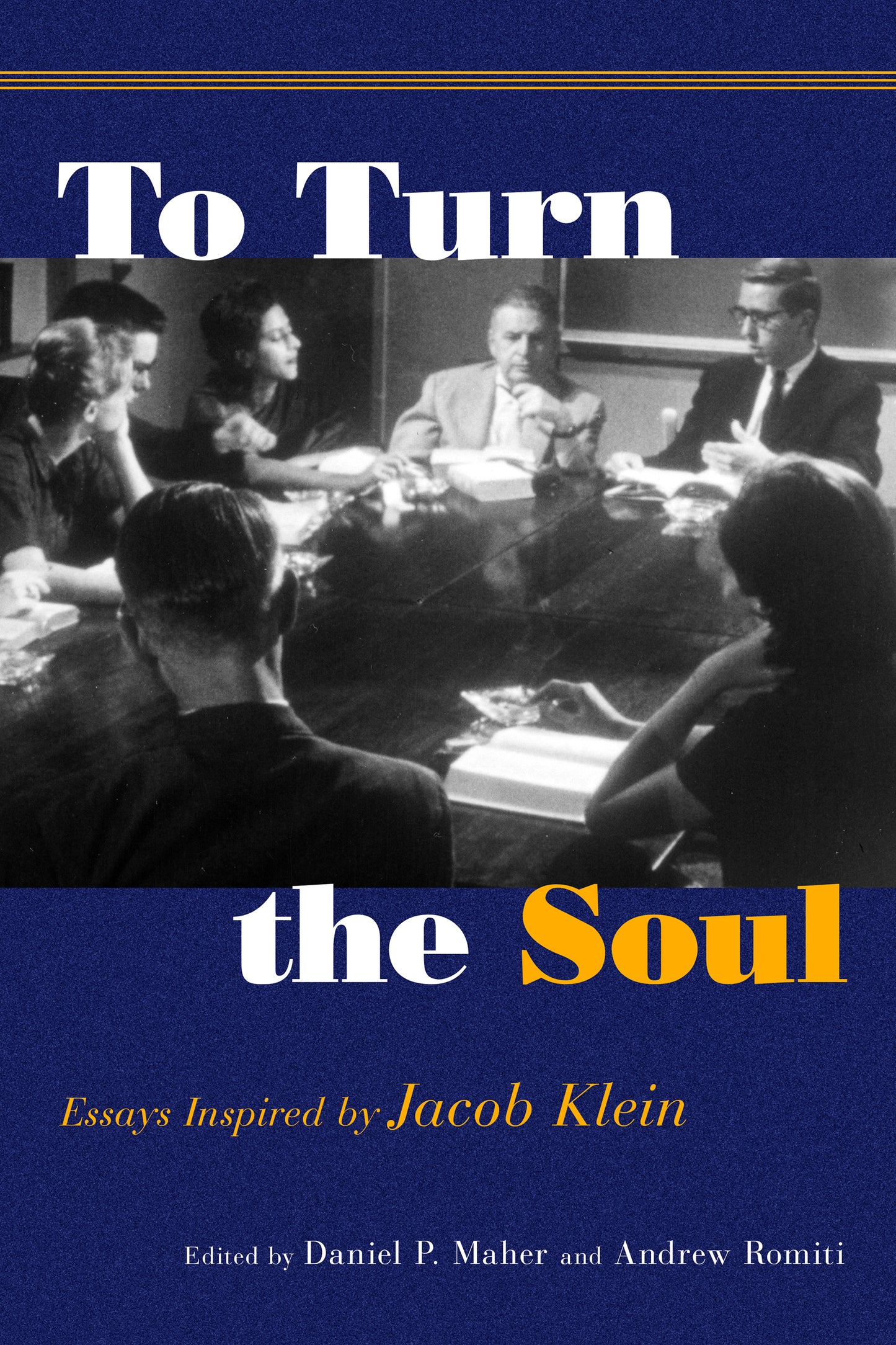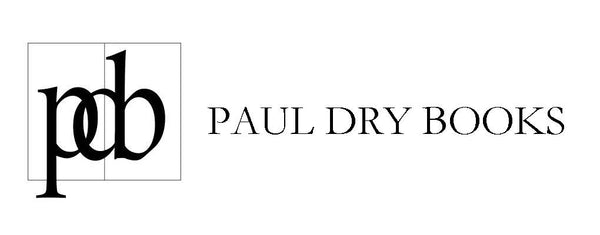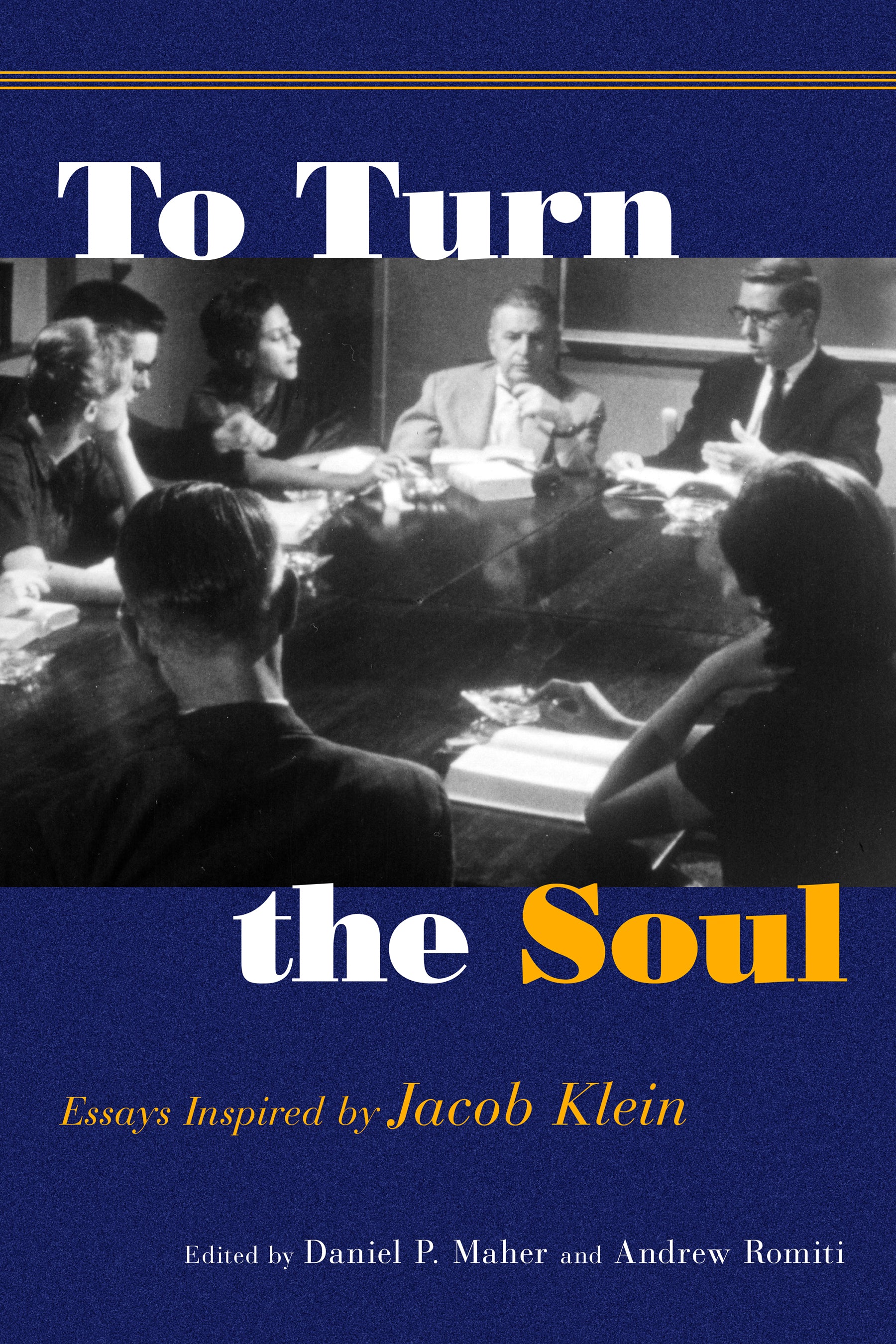To Turn the Soul: Essays Inspired by Jacob Klein
To Turn the Soul: Essays Inspired by Jacob Klein
Andrew Romiti and Daniel Maher
Couldn't load pickup availability
395-page paperback / 6" x 9" / ISBN 9781589881976
Publication Date: 1/21/2025
To Turn the Soul collects fourteen essays (three by Eva Brann) inspired by the life and thought of philosopher Jacob Klein. The contributors have been animated by Klein’s legacy—whether because they knew him, studied at St. John’s College, the institution he shaped, or found his writings a rich stimulus for thought and exploration. While the majority of the essays are based primarily on the study of Klein’s writings, they all take up an inquiry inspired by an encounter with his work. Their goal is to deepen or expand Klein’s thought by exploring its consequences, or traveling down avenues of investigation that Klein himself pursued and in some cases even initiated. The essays are offered in the hope that they inspire others to read Klein’s writings and think for themselves about the matters he takes up in them.
Contributors:
Andrew Romiti is a Tutor at St. John’s College in Annapolis, MD, where he also did his undergraduate studies. He earned his doctorate in Philosophy from the Catholic University of America, where he wrote a dissertation on Jacob Klein and Descartes.
Daniel P. Maher is Professor of Philosophy at Assumption University in Worcester, MA, where he is also Director of the Core Texts & Enduring Questions Program. He earned his doctorate at Boston College with a dissertation on Aristotle’s understanding of counting and number, which was inspired by Klein’s work.
Eva Brann has been a member of the faculty at St. John’s College in Annapolis, MD for more than sixty years, serving as Dean of the College from 1990 to 1997. She is the author of numerous books and essays and is translator of Greek Mathematical Thought and the Origin of Algebra, by Jacob Klein, her colleague at St. John’s until his death in 1978.
Julia Klein is an alumna of the undergraduate program at St. John’s College in Santa Fe, NM. She holds an M.A. in Humanities from Duke University and an M.A. in Philosophy from The Catholic University of America, where she is also a Doctoral Candidate.
Paul T. Wilford is Assistant Professor of Political Science at Boston College. He graduated from St. John’s College in Annapolis, MD, and then earned a second B.A. in Classics and an M.Phil. in Intellectual History and Political Thought from King’s College at Cambridge University, followed by a doctorate in Philosophy from Tulane University. He is the co-editor with Samuel A. Stoner of Kant and the Possibility of Progress (PENN, 2021) and with Kate Rozansky of Athens, Arden, Jerusalem (Lexington, 2017).
David Lawrence Levine taught for twenty-seven years at St. John’s College in Santa Fe, NM, where he served as both Dean of the College and Director of the Graduate Institute. He has written and lectured broadly on Plato, Aristotle, Plutarch, Rousseau, Goethe, Tocqueville, Nietzsche, Husserl, and the Great Books Program at St. John’s.
Antonio Marino Lopez is Professor of Greek Philosophy at Facultad de Estudios Superiores of the Universidad Nacional Autónoma de México. He was a student of Jacob Klein’s at St. John’s College in Annapolis, MD.
Mary Elizabeth Halper is Dean of the Humanities at Hertog program and, since 2021, a Tutor at St. John’s College in Annapolis, MD. She holds a B.A. in Philosophy and Classics from the University of Dallas and a doctorate in Philosophy from The Catholic University of America.
Burt C. Hopkins, PhD., is affiliated with the University of Lille, France ( UMR-CNRS 8163 STL), and the Faculty of Humanities, Charles University, Prague (Czechia). He is the author of The Origin of the Logic of Symbolic Mathematics: Edmund Husserl and Jacob Klein, along with numerous articles on Klein’s thought as it relates to Ancient Greek philosophy and mathematics, early modern mathematics, and the tradition of phenomenology inaugurated by Husserl early in the twentieth century.
Michael Dink is a Tutor at St. John’s College in Annapolis, MD, where he also served as Dean of the College and Director of the Graduate Institute in Liberal Education. He is an alumnus of St. John’s College in Annapolis, where he was a student of Jacob Klein’s in a preceptorial on Plato’s Sophist. He earned his doctorate from the School of Philosophy at The Catholic University of America.
Richard F. Hassing is Research Associate Professor in the School of Philosophy at The Catholic University of America, where he has taught since 1990. He holds M.A. degrees from The Catholic University of America (Philosophy) and from University of Toronto (Political Theory), and he earned his doctorate in Theoretical Physics from Cornell University.
Joseph Cosgrove is Associate Professor of Philosophy at Providence College. His recent scholarship focuses on the philosophy of science, with a particular interest in the implications of Jacob Klein’s account of the origin of algebra to modern mathematical physics.


